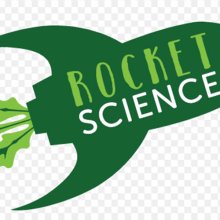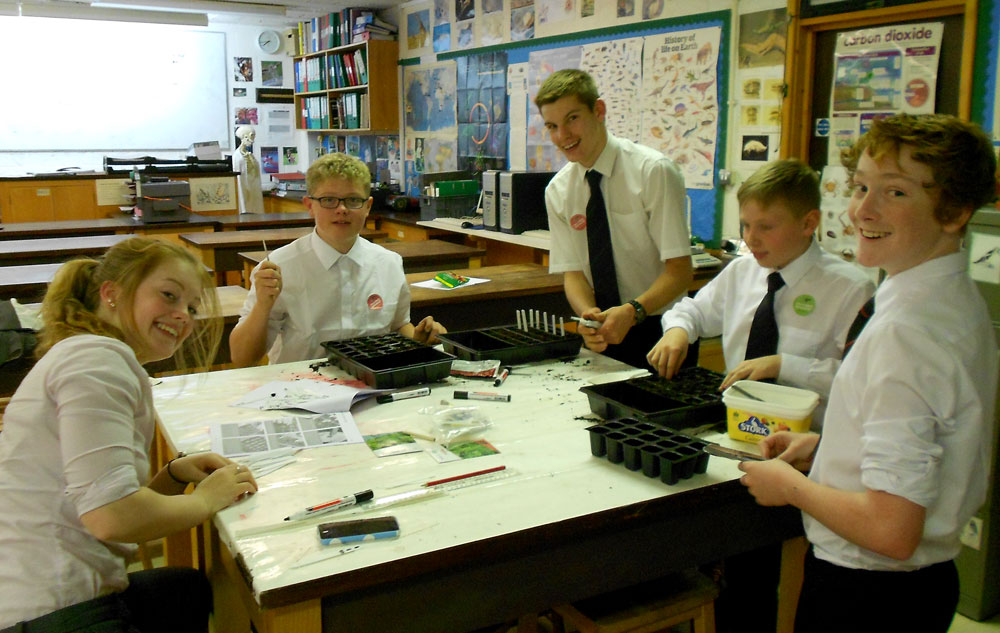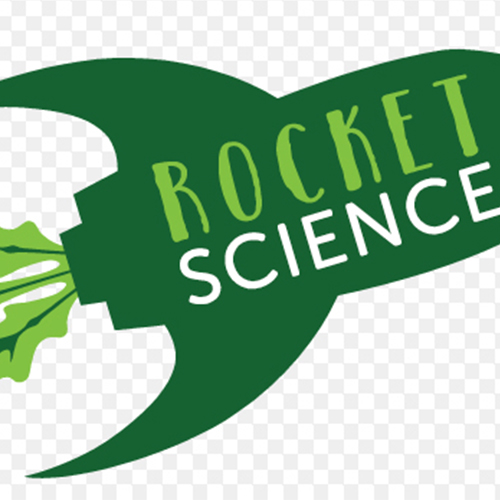
Shiplake scientists became space biologists by embarking on a voyage of discovery, by growing seeds that have been into space. In September 2015, two kilograms of rocket seeds were flown to the International Space Station (ISS) on Soyuz 44S, where they spend several months in microgravity, before returning to Earth in early March. The seeds then travelled with Scott Kelly to NASA in Houston, on a charter flight from Moscos, Russia, and returned to the UK in mid-March. These international ‘space’ seeds have been sent to Shiplake as part of Rocket Science, an educational project launched by the RHS Campaign for School Gardening and the UK Space Agency.
Shiplake College will be one of up to 10,000 schools to receive a packet of 100 seeds from space. Under the guidance of Year 12 science scholar Emily Wilkinson, the Year 9 pupils began their experience at the end of April. The seeds arrived late afternoon, and were ready for planting the following day. The experiment involves planting and nurturing two packets of seeds: one which has been into space and one which hasn’t. No school taking part will know the identity of the space seeds until the end of the experiment.
 The out-of-this-world, nationwide science experiment will enable pupils to think more about how human life could be preserved on another planet in the future and what astronauts need to survive long-term missions in space. The project aims to encourage children and young people to become space biologists, in order to weigh up whether it is possible to grow our own food on other planets, millions of miles away from Earth, and the difficulties surrounding growing fresh food in challenging climates. Throughout the experiment pupils will measure and record key data for their seeds as they germinate and grow. At the end of the experiment, the data is uploaded onto a national database, contributing to a global scientific understanding of the practicalities of growing plants in space. The six week experiment will culminate in a specially recorded video in with astronaut Tim Peake, where he will reveal the true identity of the space speeds to participating schools. In the meantime, Shiplake scientists can predict which packet the space seeds are in – red or blue!
The out-of-this-world, nationwide science experiment will enable pupils to think more about how human life could be preserved on another planet in the future and what astronauts need to survive long-term missions in space. The project aims to encourage children and young people to become space biologists, in order to weigh up whether it is possible to grow our own food on other planets, millions of miles away from Earth, and the difficulties surrounding growing fresh food in challenging climates. Throughout the experiment pupils will measure and record key data for their seeds as they germinate and grow. At the end of the experiment, the data is uploaded onto a national database, contributing to a global scientific understanding of the practicalities of growing plants in space. The six week experiment will culminate in a specially recorded video in with astronaut Tim Peake, where he will reveal the true identity of the space speeds to participating schools. In the meantime, Shiplake scientists can predict which packet the space seeds are in – red or blue!
Biology teacher Mr Grant Lawson commented that ‘Shiplake are really thrilled to be part of the Rocket Science project. The experiment is a fantastic way of giving academic science scholars the chance to get involved with younger pupils in an interesting and dynamic project, sharing their enthusiasm for science and help the pupils to think more scientifically.’ Rocket Science is just one educational project from a programme developed by the UK Space Agency to celebrate British ESA astronaut Tim Peake’s Principia mission to the ISS, inspiring young people to look into careers in science, technology, engineering and maths (STEM). The experiment is truly innovative, and affords the pupils involved an original and unique avenue into an inspiring, evolving branch of science.





















